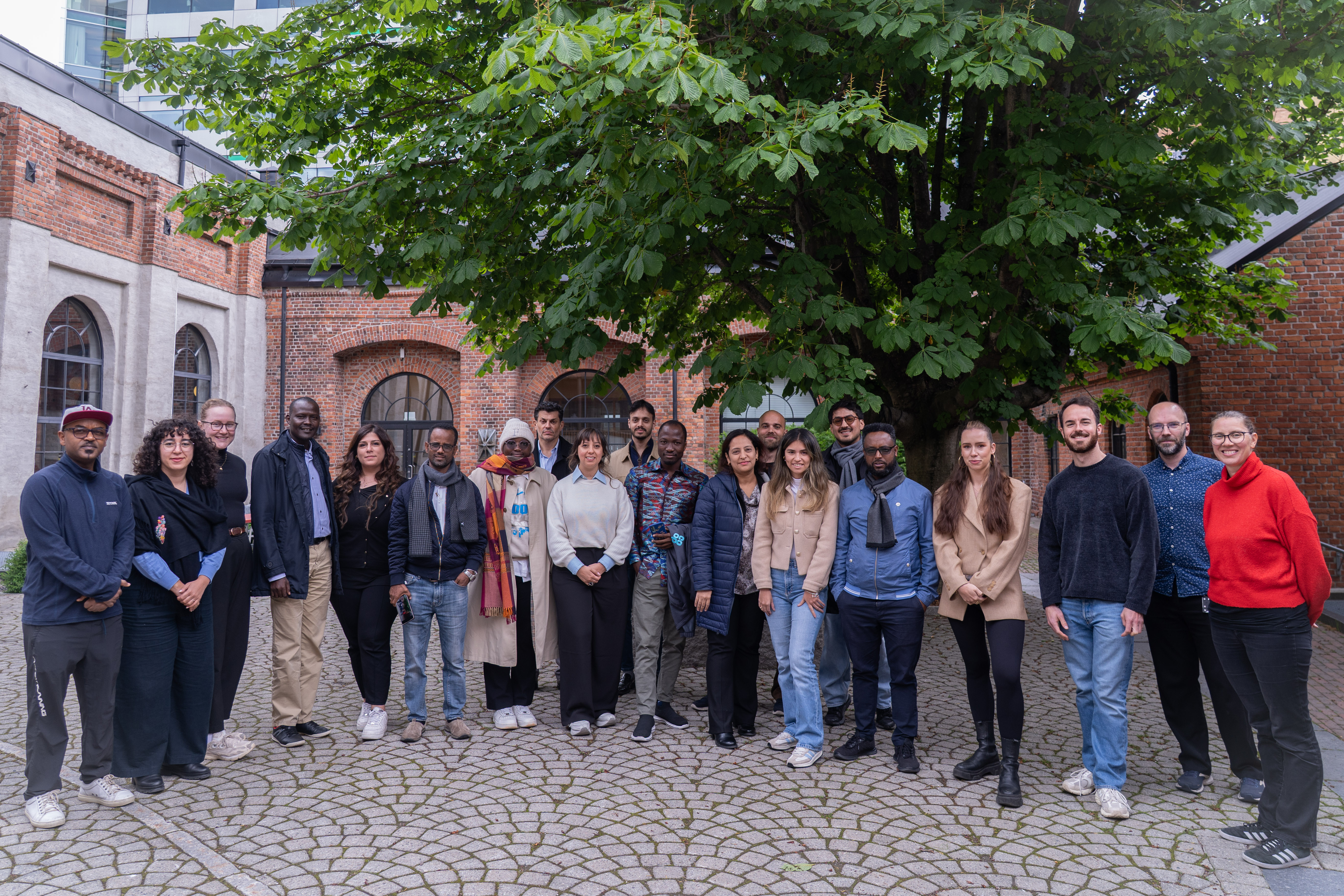Jumana Sabah and Hadil Ayoub, assistant researchers at the Muwatin Institute for Democracy and Human Rights, participated in the course "Conflict Trends" organized by the Peace Research Institute Oslo (PRIO) from 3-5 June 2025.
This course comes within the framework of the “Partnership for Peace: Better Higher Education for Resilient Societies (NORHED II)” project. This project is jointly implemented by the University of Oslo in Norway, Birzeit University in Palestine, the University of Los Andes in Colombia, the African School of Economics in Benin, Makerere University in Uganda, and Mekelle University in Ethiopia.
The course examines conflict trends based on data and statistics related to major conflicts around the world, as well as conflict-related variables. It discusses broader global trends in data collection related to conflict and organized violence, such as the level and type of conflict, their geography and demographics, and mechanisms for classifying and analyzing geographic information in conflict data to understand conflicts in different regions, particularly about methodologies for counting conflict casualties globally. Topics of discussion also include the impact of peaceful resistance on democratic transitions.
The course participants discussed the data on which the topics raised were based, the accuracy of the mechanism for collecting data related to the conflict, how it is coded, how this data can be read within different contexts. Furthermore, participants considered how to understand the data within the broader human rights framework by understanding what is and is not included in the data.
The course involved working groups of course participants to analyze various models of conflicts around the world. A variety of conflicts were reviewed, including various data sets. Each group discussed how to classify these conflicts based on the data presented, and the dimensions and implications of the data presented for various human rights, such as children's and women's rights, among others.
A diverse group of participants, including researchers, PhD students, and human rights activists from partner universities and other institutions, participated in the course.

